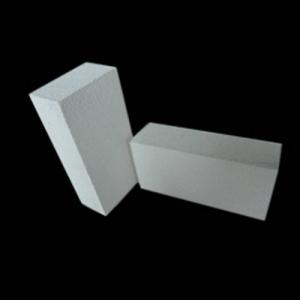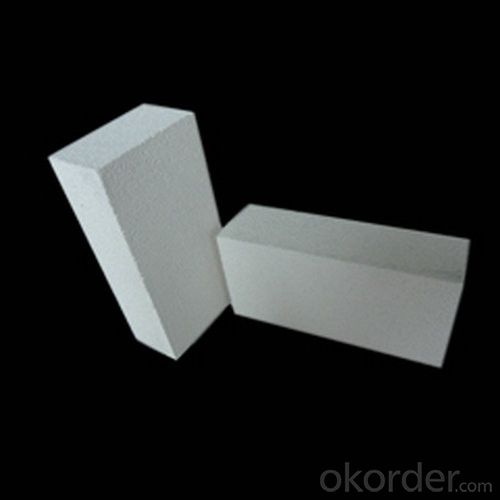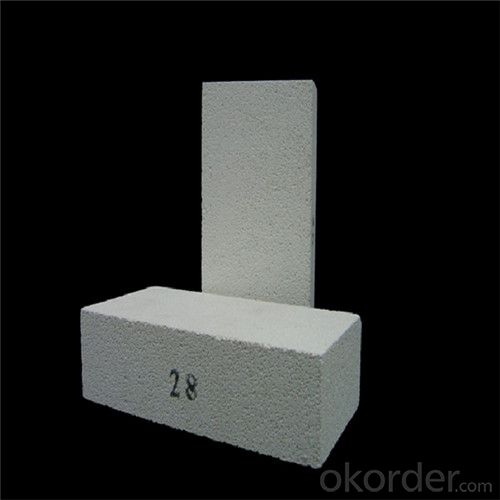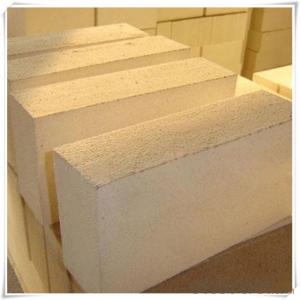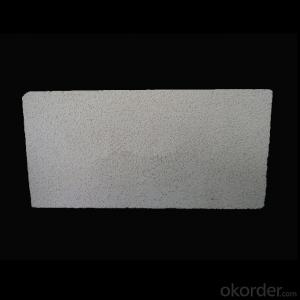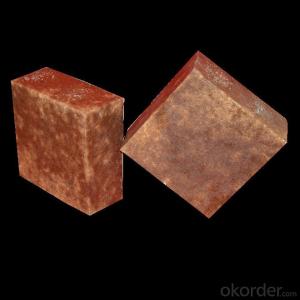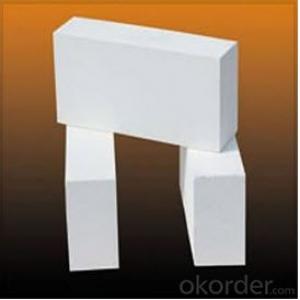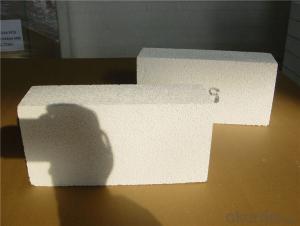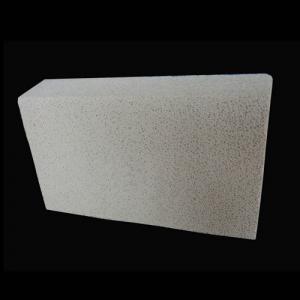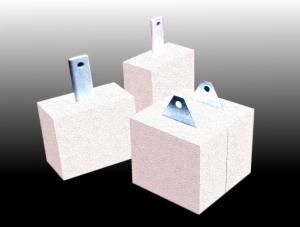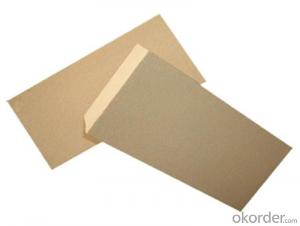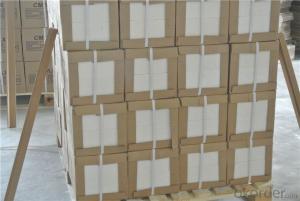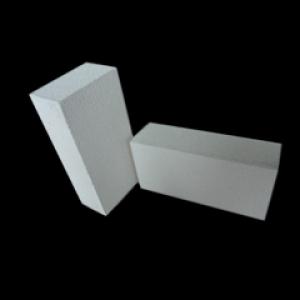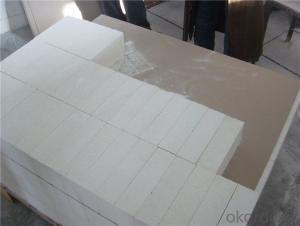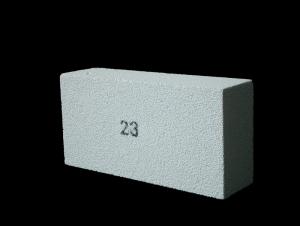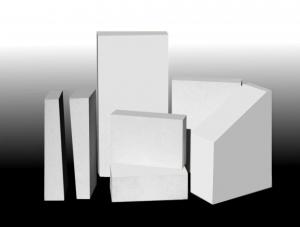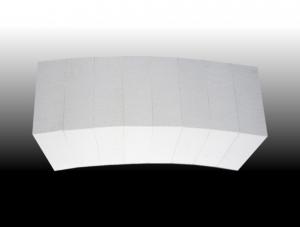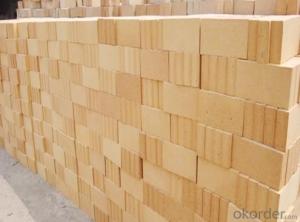Insulating Fire Brick - GJM Insulation Brick Insulating Brick
- Loading Port:
- Shanghai
- Payment Terms:
- TT or LC
- Min Order Qty:
- 1000 pc
- Supply Capability:
- 100000000 pc/month
OKorder Service Pledge
OKorder Financial Service
You Might Also Like
General information of Insulating Brick
Insulating firebricks are classified under tempera-ture between 1100C to 1700C, manufactured from high purity alumina clay.
Insulating fire bricks are made from high purity alumina and low iron content raw materials. The insulating fire bricks are produced by mixing, casting or extruding, drying, sintering and grinding. Our insulating fire bricks GJM23 temperature is 1260℃(2300℉). A variety of type could be done according to customer’s request.
To make our firebricks more energy and cost effective, we have different manufacturing methods for our insulating fire bricks casting and extruding method.
For insulating fire bricks GJM23,we choose the casting methord.The casting insulating fire bricks offering the lowest density, the lowest thermal conductivity for the application above 1000℃.
Application of Insulation brick
Insulating firebricks can be used as a hot face lining directly exposed to the heat or as a backup insulation layerin iron and steel mills, non-ferrous foundries, petrochemical, ceramic, glass.
Features of Insulation brick
◆Light weight and low thermal conductivity
◆Low heat storage
◆Low iron and impurities
◆High thermal shock resistance
Technical Data of GJM series Insulation brick
| JM23 | JM26 | JM28 | JM30 | JM32 | ||||
| Physical Properties: | ||||||||
| Classifiction Temperature | ℃ | 1260.0 | 1430.0 | 1500.0 | 1600.0 | 1650 | ||
| Density | Kg/m3 | 550.0 | 850.0 | 900.0 | 1000.0 | 1100 | ||
| Cold Crushing Strength | Mpa | 1.2 | 2.0 | 2.5 | 2.8 | 3.5 | ||
| Reheating Linear Change(24hrs) | ||||||||
| 1230℃ | % | 0.4 | ||||||
| 1300℃ | ||||||||
| 1400℃ | % | 0.5 | ||||||
| 1510℃ | % | 0.6 | ||||||
| 1600℃ | % | 0.7 | ||||||
| 1650℃ | % | 0.8 | ||||||
| Hot Load Strength Deform(90 minutes) | ||||||||
| 1100℃ at 0.034 Mpa(5psi) | % | 0.1 | ||||||
| 1260℃ at 0.069 Mpa(10psi) | % | 0.2 | ||||||
| 1320℃ at 0.069 Mpa(10psi) | % | 0.3 | ||||||
| 1370℃ at 0.069 Mpa(10psi) | % | 0.2 | 0.1 | |||||
| Thermal Conductivity | ||||||||
| 400℃ | W/m.k | 0.2 | 0.3 | 0.3 | 0.3 | 0.32 | ||
| 600℃ | W/m.k | 0.2 | 0.3 | 0.3 | 0.3 | 0.35 | ||
| 800℃ | W/m.k | 0.2 | 0.3 | 0.4 | 0.4 | 0.38 | ||
| 1000℃ | W/m.k | 0.2 | 0.3 | 0.4 | 0.4 | 0.42 | ||
| 1200℃ | W/m.k | 0.4 | 0.4 | 0.4 | 0.44 | |||
| 1400℃ | W/m.k | |||||||
| Specific Heat | KJ/Kg.K | 1.1 | 1.1 | 1.1 | 1.1 | 1.10 | ||
| Chemical Analysis: | ||||||||
| Al2O3 | % | 47.0 | 50.0 | 60.0 | 70.0 | 75.0 | ||
| SiO2 | % | 44.4 | 47.1 | 38.2 | 28.3 | 23.2 | ||
| Fe2O3 | % | 0.9 | 0.7 | 0.6 | 0.5 | 0.5 | ||
| TiO2 | % | 1.2 | 0.1 | 0.1 | 0.1 | 0.1 | ||
| CaO | % | 5.2 | 0.1 | 0.1 | 0.1 | 0.1 | ||
| MgO | % | 0.3 | 0.2 | 0.1 | 0.1 | 0.1 | ||
| Na2O+K2O | % | 1.1 | 1.7 | 0.8 | 0.7 | 0.6 | ||
Technical Data of B series Insulation Brick
| B-1 | B-2 | B-3 | B-4 | B-5 | B-6 | B-7 | ||||
| Physical Properties: | ||||||||||
| Density | g/cm3 | 0.7 | 0.7 | 0.75 | 0.80 | 0.80 | 0.90 | 1.00 | ||
| Cold Crushing Strength | Mpa | 2.5 | 2.5 | 2.5 | 2.5 | 2.5 | 3.0 | 3.0 | ||
| Thermal Conductivity 350℃ | W/m.k | 0.17 | 0.18 | 0.20 | 0.22 | 0.23 | 0.27 | 0.31 | ||
Technical Data of C series Insulation Brick
| C-1 | C-2 | C-3 | ||||
| Physical Properties: | ||||||
| Density | g/cm3 | 1.1 | 1.2 | 1.3 | ||
| Cold Crushing Strength | Mpa | 5.0 | 7.0 | 10.0 | ||
| Thermal Conductivity 350℃ | W/m.k | 0.30 | 0.38 | 0.45 | ||
Photo of Insulation Brick
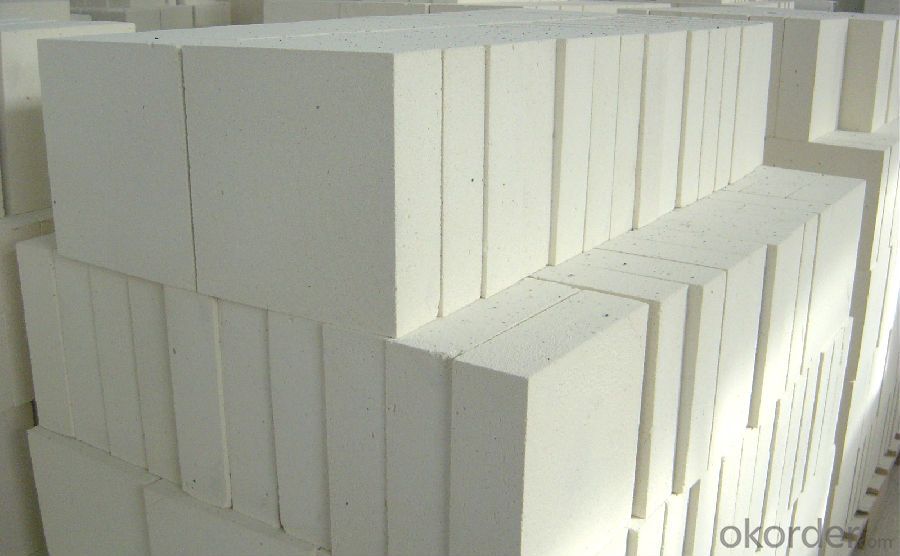
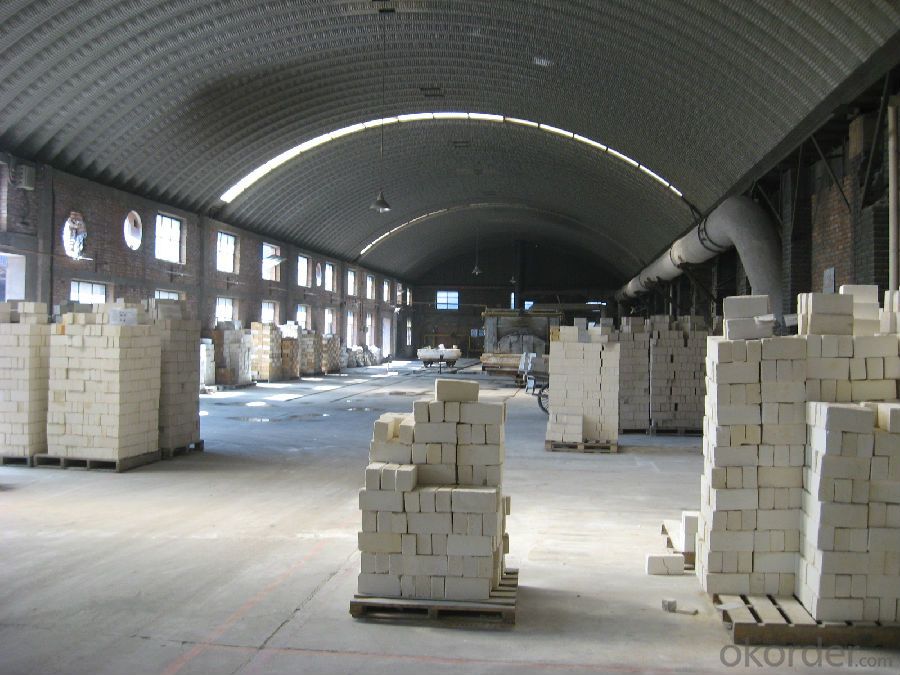
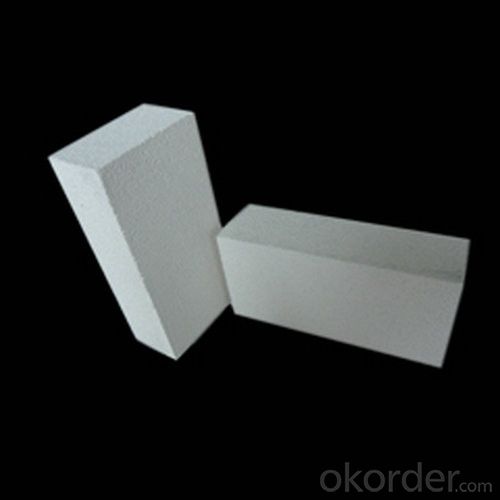
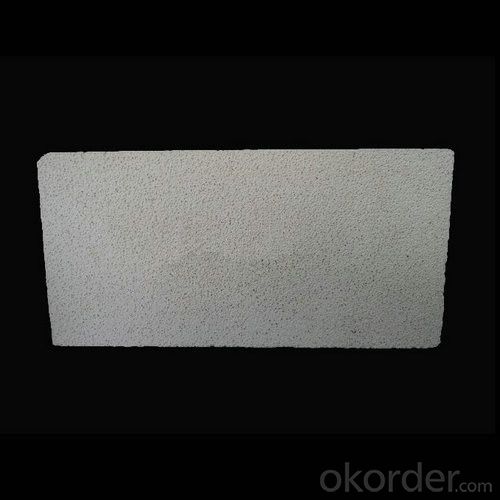
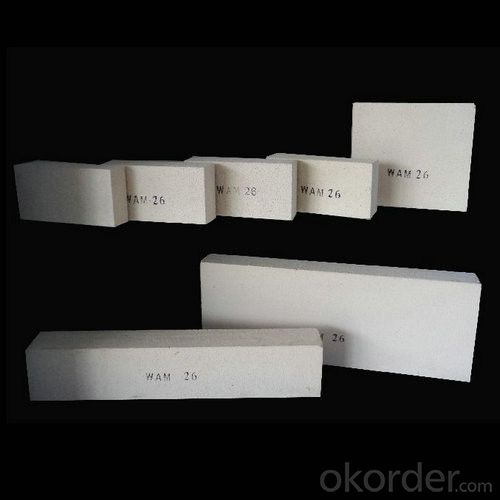
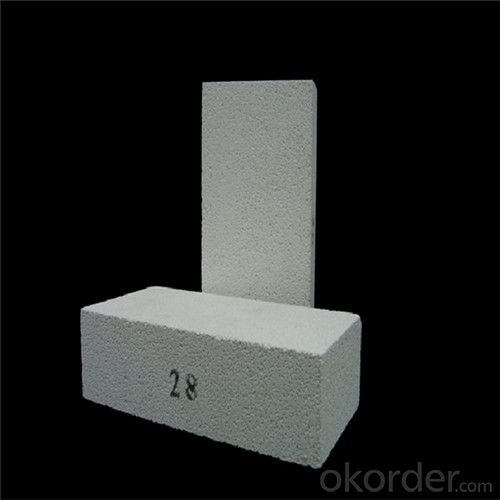
- Q: Are insulating fire bricks resistant to thermal shock cracking?
- Insulating fire bricks exhibit resistance against thermal shock cracking. These bricks are engineered to endure elevated temperatures and sudden temperature variations without experiencing cracks. With their low thermal conductivity, they efficiently capture and retain heat while remaining unharmed by thermal shock. Consequently, insulating fire bricks find frequent application in contexts where thermal shock poses a potential hazard, such as furnaces, kilns, and other environments with high temperatures. Their dependable resistance to thermal shock cracking renders them a trustworthy selection for such applications.
- Q: Can insulating fire bricks be used to line industrial boilers?
- Yes, insulating fire bricks can be used to line industrial boilers. Insulating fire bricks are designed to withstand high temperatures and provide excellent insulation properties. They are commonly used in industrial applications, including lining furnaces, kilns, and boilers, to reduce heat loss and improve energy efficiency.
- Q: Can insulating fire bricks be used for insulation in hot water tanks?
- Indeed, insulating fire bricks are suitable for insulating hot water tanks. Their superior thermal insulation properties deem them an optimal selection for such purpose. By utilizing these bricks, heat loss from the hot water tank can be efficiently prevented, consequently prolonging the water's temperature retention. Furthermore, these bricks exhibit exceptional durability and can endure high temperatures without fracturing or shattering, rendering them a dependable option for hot water tank insulation.
- Q: Can insulating fire bricks be used in the construction of pottery extruders?
- Yes, insulating fire bricks can be used in the construction of pottery extruders. These bricks are known for their high heat resistance, low thermal conductivity, and excellent insulating properties, making them suitable for applications where high temperatures are involved, such as pottery extrusion. They can help maintain a consistent temperature within the extruder, ensuring optimal working conditions for the clay and improving overall efficiency.
- Q: Can insulating fire bricks be used in boilers for steam generation?
- Yes, insulating fire bricks can be used in boilers for steam generation. Insulating fire bricks are made from lightweight materials that have high insulating properties, such as ceramic fibers or expanded clay. These bricks are designed to have low thermal conductivity, which means they are excellent at preventing heat transfer. In boilers, the insulation is crucial to reduce heat loss and improve energy efficiency. Insulating fire bricks can be used to line the walls, roof, and floor of the boiler combustion chamber. By providing a highly insulating barrier, they help to retain heat within the combustion chamber, allowing for more efficient steam generation. Furthermore, insulating fire bricks can withstand high temperatures, making them suitable for use in boilers where steam generation involves elevated temperatures. They are also resistant to thermal shock, which is important in boilers where temperature fluctuations can occur. Overall, insulating fire bricks are a valuable choice for boiler applications as they provide excellent insulation, withstand high temperatures, and contribute to improved energy efficiency in steam generation.
- Q: What is the maximum temperature range of high temperature resistant insulation materials?
- Materials defined as physical and chemical properties that allow them to be used in a high temperature environment are called refractory materials. Refractory materials are widely used in metallurgy, chemical, petroleum, machinery manufacturing, silicate, power and other industrial fields, the largest amount of metallurgical industry, accounting for 50% ~ 60% of the total output.
- Q: Can insulating fire bricks be used in high-temperature ducts?
- Insulating fire bricks can indeed be used in high-temperature ducts. These bricks are specially designed to withstand extreme temperatures, making them an ideal choice for applications where heat retention and insulation are crucial. With their low thermal conductivity and high resistance to thermal shock, insulating fire bricks can effectively trap heat within the ducts, preventing any loss of energy and ensuring efficient heat transfer. Additionally, their lightweight nature makes them easy to install and handle, while their durability allows them to withstand the harsh conditions of high-temperature environments. Overall, insulating fire bricks are a reliable and effective solution for insulating high-temperature ducts.
- Q: Can insulating fire bricks be used in high-temperature ducts?
- Insulating fire bricks can indeed be used in high-temperature ducts. These bricks are specially designed to withstand extreme temperatures, making them an ideal choice for applications where heat retention and insulation are crucial. With their low thermal conductivity and high resistance to thermal shock, insulating fire bricks can effectively trap heat within the ducts, preventing any loss of energy and ensuring efficient heat transfer. Additionally, their lightweight nature makes them easy to install and handle, while their durability allows them to withstand the harsh conditions of high-temperature environments. Overall, insulating fire bricks are a reliable and effective solution for insulating high-temperature ducts.
- Q: How do insulating fire bricks affect the overall weight of a structure?
- Insulating fire bricks are lightweight materials specifically designed for their low density and high thermal insulation properties. As a result, when used in a structure, they contribute to reducing the overall weight of the construction. This is advantageous as it helps to minimize the load on the foundation and other structural elements while maintaining the required insulation and heat resistance.
- Q: How do insulating fire bricks differ from regular fire bricks?
- Insulating fire bricks differ from regular fire bricks in terms of their composition and thermal properties. Insulating fire bricks are made from lightweight materials such as expanded clay, vermiculite, or perlite, which have high insulating properties. They have lower density and higher porosity compared to regular fire bricks, allowing them to retain heat better and provide superior insulation. Regular fire bricks, on the other hand, are made from dense materials like clay or silica, which provide better structural strength but have lower insulation capabilities.
Send your message to us
Insulating Fire Brick - GJM Insulation Brick Insulating Brick
- Loading Port:
- Shanghai
- Payment Terms:
- TT or LC
- Min Order Qty:
- 1000 pc
- Supply Capability:
- 100000000 pc/month
OKorder Service Pledge
OKorder Financial Service
Similar products
Hot products
Hot Searches
Related keywords
